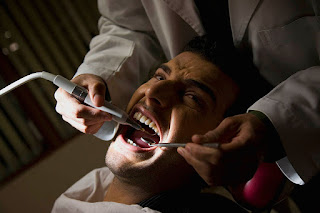A Guide to Root Canal Treatment and its Benefits
If you have ever had your tooth ache, you may be concerned about the possibility of having a root canal. Even though this procedure can be necessary and very beneficial, it can still be somewhat intimidating to think about getting one done on you. As always, the best way to get over these fears is to learn as much as you can about them. If you're From Gurgaon take advice from one of the best
Dentist in Gurgaon That’s why we’ve compiled this guide to give you an overview of root canal treatment and what it means for your oral health moving forward. Read on to learn more!
What is a root canal?
Root canal treatment is a dental procedure that removes the infected pulp from inside the tooth, saving the tooth from extraction. When neglected or not treated properly, an infected tooth can lead to pain, swelling, abscesses, headaches and infection in your jawbone. If you're experiencing any of these symptoms it's time for a root canal!
Root canal procedures vary depending on the severity of infection and can take anywhere from one hour for an uncomplicated case up to three hours for more complicated cases. The dentist will remove all infected tissues from your tooth using specialized instruments that allow access into the canals of your teeth. The remaining healthy parts of your tooth are then sealed with a filling material called gutta percha.
The benefits of root canal treatment
1. Reduces the risk of tooth loss
2. Decreases the risk of periodontal disease
3. Increases retention
4. Decreases sensitivity
5. Protects the teeth from infection
6. Improves quality of life
7. Promotes better oral health
8. Increases ability to eat healthy foods
9. Helps with chewing
10. Prevents a buildup of plaque
The procedure for root canal treatment
Root canal treatment, also known as endodontic therapy, is the process of removing infected nerve tissue from inside a tooth. This procedure can be done on an individual tooth or on all of the teeth in a particular area. If you have any pain in your teeth that won't go away with regular brushing, you should make an appointment with your dentist. If your dentist discovers signs of infection within one or more of your teeth, he or she may recommend root canal treatment.
Root canal treatment is usually performed under local anesthesia, meaning that you will not feel any pain during the procedure. The dental surgeon will first drill out any decay left in the tooth before using rotary instruments to shape it back into its normal shape. Once this has been completed, he or she will thoroughly clean the root canal of any remaining bacteria or debris and then seal it off with special cement. Once this has been completed, only a small portion of the exposed pulp remains which does not need to be removed because dentists are confident that bacteria cannot grow there again.
How to care for your teeth after a root canal
Caring for your teeth after a root canal is crucial.
Follow these steps:
- Brush your teeth twice daily with a soft-bristled toothbrush and fluoride toothpaste.
- Floss every day.
- Use an antibacterial mouthwash in the morning or before you go to bed at night.
And remember, it's important not to eat too soon after a root canal treatment.



Comments
Post a Comment